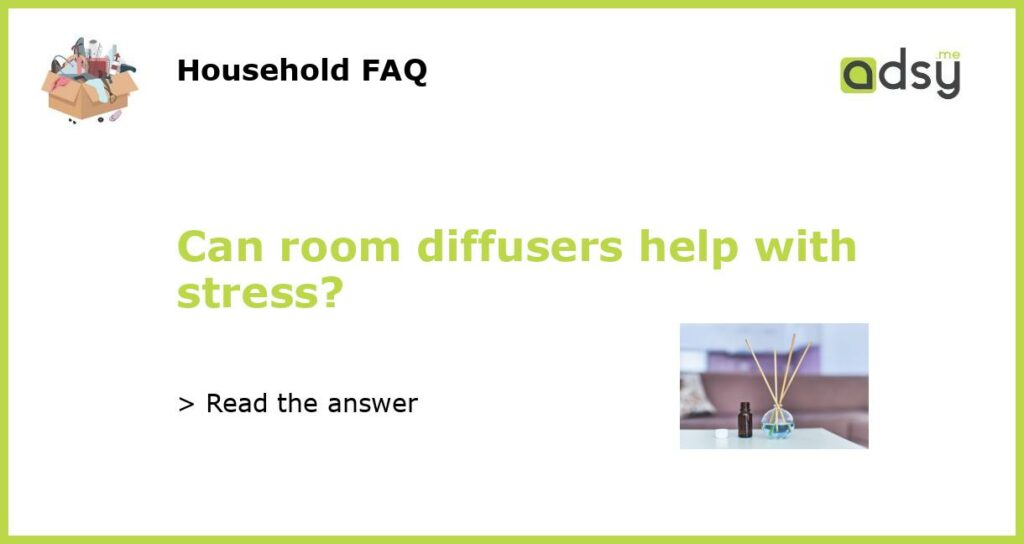How Do Room Diffusers Work?
Room diffusers work by releasing essential oils into the air, creating a pleasant aroma in the room. These oils are typically made from plants and are known for their various therapeutic benefits. The diffuser disperses the oils into the air in the form of a fine mist or vapor, which can then be inhaled. The scents of the oils stimulate the olfactory system, which is connected to the part of the brain responsible for emotions and memories. This can have a calming effect on the body and mind, helping to reduce stress levels.
The Effects of Essential Oils on Stress
Essential oils have been used for centuries to promote relaxation and relieve stress. Some oils, such as lavender, chamomile, and bergamot, are known for their soothing properties. These oils have been shown to help reduce anxiety, promote sleep, and improve overall well-being. When used in a room diffuser, the aroma of these oils can create a calming environment, which can help to alleviate stress. Inhaling the scents of these oils can also have a direct effect on the body, as the molecules of the oils enter the bloodstream through the respiratory system.
Scientific Evidence on the Efficacy of Room Diffusers
While there is limited scientific research specifically on the use of room diffusers for stress relief, there is evidence to suggest that essential oils can have a positive impact on mood and stress levels. A study published in the Journal of Alternative and Complementary Medicine found that inhalation of lavender oil improved mood and reduced anxiety in participants. Another study published in the International Journal of Neuroscience found that inhaling the scent of bergamot oil reduced cortisol levels, a hormone associated with stress, in participants.
Other Benefits of Room Diffusers
In addition to their potential stress-relieving properties, room diffusers offer a range of other benefits. They can improve air quality by eliminating odors and bacteria in the air. The use of essential oils in a diffuser can also help to boost the immune system, improve cognitive function, and enhance sleep quality. Certain oils, such as eucalyptus and tea tree oil, have antimicrobial properties and can help to kill airborne viruses and bacteria. Overall, using a room diffuser with essential oils can create a more pleasant and healthy environment in your home or workplace.
Tips for Using Room Diffusers for Stress Relief
If you’re interested in using a room diffuser to help with stress, here are a few tips to keep in mind:
- Choose oils known for their calming properties, such as lavender, chamomile, or bergamot.
- Follow the instructions provided with your diffuser to ensure safe and correct usage.
- Start with a low concentration of essential oils and adjust as needed to find the right balance for you.
- Use the diffuser in a quiet and relaxing environment to fully benefit from the aromatherapy.
- Experiment with different scents and combinations to find the ones that work best for you.
Remember that while room diffusers can help to create a calming atmosphere, they are not a substitute for professional medical advice or treatment. If you’re experiencing chronic or severe stress, it’s important to consult with a healthcare professional. However, incorporating the use of room diffusers into your daily routine may provide an additional tool for managing stress and promoting relaxation.






